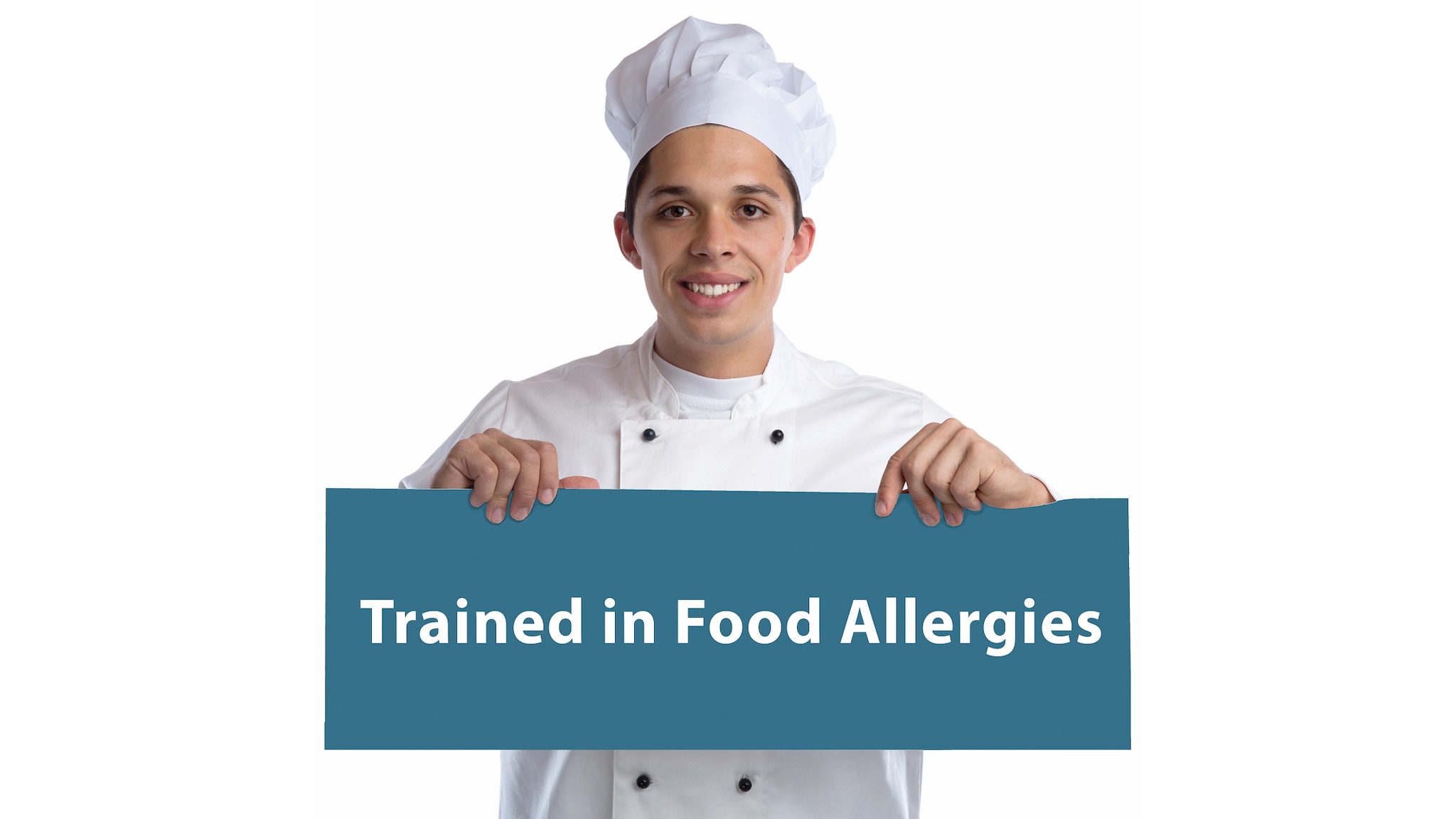At a glance
We wanted to find out how many restaurants take key steps to prevent allergic reactions. We talked to restaurant managers, food workers, and servers and looked at restaurant records to understand staff knowledge and attitudes about food allergies. Learn what restaurants can do to prevent allergic reactions in their restaurant.

Key takeaways from two scientific studies
We found gaps in restaurant knowledge and practices about food allergies. However, restaurants and environmental health programs can work to reduce the risk of customer food allergic reactions in their restaurant.
Taking the following steps can prevent allergic reactions:
- Train staff on food allergies, especially less experienced staff. Many restaurants had staff who had not received training on food allergies and lacked key knowledge about allergens. Staff with less experience in the restaurant had less knowledge about allergies.
- Use separate equipment and areas to prepare and cook meals for customers with food allergies, when feasible. Many restaurants did not prepare allergen-free food on separate equipment or surfaces. If a separate cooking or preparation area is not available, the person cooking should thoroughly clean and sanitize surfaces and equipment before preparing food for customers with allergies.
- Provide ingredient lists or recipes for menu items. Some restaurants did not have lists of ingredients or recipes available for their menu items.
- Have a plan for serving customers with food allergies. Restaurant staff knew more about food allergies if they worked in restaurants with a plan for serving customers with food allergies.
Why this is important
Food allergies are common in restaurants. Many food allergic reactions occur in restaurants. And one in three people with food allergies report having a reaction in a restaurant. Understanding restaurant practices and what food workers know about allergies them can help reduce risk of food allergic reactions in restaurants.
What we learned
Restaurant managers and staff were generally knowledgeable and had positive attitudes about accommodating customers' food allergies, but more than half of the staff we interviewed had never been trained on food allergies.
- Training often did not cover important information such as what to do if a customer has an allergic reaction.
- Some managers and staff incorrectly believed someone with a food allergy could safely eat a small amount of that allergen.
- Some staff thought others in their restaurant might not know what to do if a customer had an allergic reaction.
Staff knew more about food allergies if they:
- Worked in restaurants with a plan for serving customers with food allergies
- Had more experience in their restaurant
Most restaurants had lists of ingredients or recipes available for some or all their menu items, but most restaurants did not have separate areas and equipment for preparing and cooking allergen-free food. These are key practices that can help customers with food allergies.
More information
Journal articles this plain language summary is based on: restaurant practices and staff knowledge and attitudes
More practice summaries and investigation summaries in plain language
